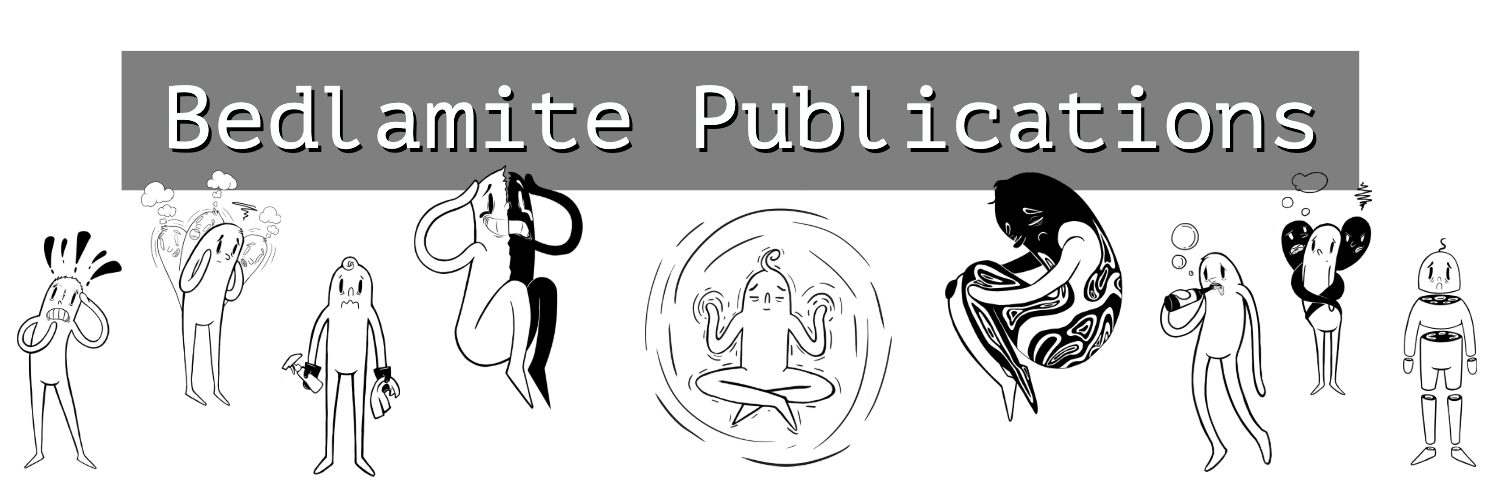It’s estimated that 16.2 million adults in the United States struggle with depression. Since this condition is so common, it’s likely you know someone struggling. Furthermore, it’s also likely you’ve asked yourself “how to support someone with depression?”
There is no easy answer. Depression is a complex disease with many different factors at play. Throughout this article, we’re going to take a deeper look into recognizing depression and what you can do to support someone. At the end, we invite you to ask further questions.
How to Recognize Symptoms of Depression
Before you get involved with someone who’s struggling with depression, it’s important to understand that symptoms can vary. Furthermore, they may replicate symptoms of other conditions, such as bipolar disorder.
The most common symptoms of depression include: ¹
- Feelings of sadness, anxiety, or emptiness
- Guilt, worthlessness, or helplessness
- Irritability
- Lack of energy (fatigue)
- Loss of interest in activities you once enjoyed
- Pains and aches, cramps, headaches, or digestive problems (without clear sign of physical cause)
- Problems with concentration, memory, and decision-making
- Restlessness
- Sense of hopelessness or pessimism
- Sleep problems (i.e. oversleeping)
- Suicidal ideation
- Talking or moving slowly
- Weight or appetite changes
While it’s unlikely someone you know will experience all these symptoms, it’s likely there are a few persistent ones along with a low mood.
How to Support Someone with Depression
It can be difficult to know where to start when helping someone with depression. We’ve laid out 8 different ways you can make a positive difference.
1.) Talk to Them
While it sounds simple at first, a conversation about your concerns can really change a person’s perspective. Beyond being a great starting point, this will also allow you to learn more about your loved one and their situation.
Naturally, your loved one may not be looking for advice from you. Rather, they’re simply trying to discuss how they feel with an active listener. If this is something you struggle with, here are some listening techniques to consider: ²
- Don’t assume you have the answers. Ask questions that will open up more conversation.
- Endorse their feelings. Even if you’ve never experienced them, you may be able to understand.
- Use your body language as a way to reveal empathy and interest.
If your loved one isn’t completely open at first, that’s okay. As long as you continue to attempt a conversation, you’re showing you care.
2.) Find Others Who Will Support
People with depression often aren’t aware of how many support system are available to them. Beyond close friends and relatives, there are a number of different therapies and groups dedicated to helping people with depression.
If you’re loved one is interested in this kind of support, it can help if you do some research on nearby therapists or depression groups. By offering a list of potential options to your loved one, you’re further showing your support in helping them.
Even more so, this can open thee door to other conversation points, such as what your loved one hopes to get out of their first meeting. You may find they’re having difficulty attending this first appoint. If so, show your encouragement or offer to join in with them (if possible).

3.) Ensure They Follow Through with Treatment
As your loved one goes through treatment, they’re likely going to have bad days. Depression isn’t something that can be treated overnight and will take a lot of effort on their end. In order to support your loved one through treatment, it can help to encourage them in minor ways.
This will look differently depending on the situation. However, a few examples include:
- If you’ve noticed your loved one is self-isolating, you can find things to do to get them out of the house.
- If your loved one wants to cancel their therapy appointment, you can give them the motivation they need to go. One way to do so is by reminding them of past instances where therapy has had a positive outcome.
- If your loved one attempts to cancel on a social event, you can show enthusiasm by encouraging that everyone wants to see them there.
This support for treatment should also follow with medication. Admittedly, antidepressants (most common depression medication) can come with uncomfortable side effects. ³ If your loved one is experiencing these, it may be worth looking into whether or not they can change their prescription.
However, it’s important not to suddenly stop antidepressant treatment as this can have serious health consequences. ⁴ If your loved one is adamant about coming off antidepressants, you may be interested in showing them alternative therapies for depression.
4.) Don’t Forget About Yourself
It can be a lot to handle when caring for someone with depression. So much so, you may lose sight of your own needs. In such cases, it can be greatly beneficial to remember to take care of yourself.
There are a few ways to go about this. For example, you may need to set boundaries in order to continue your support. While this all depends on your situation, you may need to remind your loved one that you can only help at certain times (i.e. once you get off of work).
When setting boundaries, it may help to develop a schedule your loved one can look forward to. For example, you may set specific times of the week in which you’ll grab a meal with them.
Furthermore, it’s incredibly important to practice self-care through your support. Helping someone with depression can take an emotional toll on yourself and leave you feeling drained. With that, it’s important to understand your limits and take the time to relax.
While research concerning the topic is slim, some studies have found depression might be contagious. ⁵ Therefore, it’s in your interest to do all you can to help yourself while helping others.
5.) Research Depression
If you don’t know much about depression and mental health, it can help greatly to research these topics. Beyond giving you insight into what your loved one is experiencing, this will also allow for less explanation on their end.
It’s likely your loved one is experiencing specific symptoms and may even be able to pinpoint the reason behind these symptoms. With that in mind, it’s important not to talk about depression on general terms.
Remember, this is a complex disease and there are many layers to symptoms, causes, diagnosis, and treatment. Not to mention, there are various types of depression, each of which has its own set of symptoms and treatment methods. ⁶

6.) Offer Support in Daily Activities
One of the most difficult aspects of depression is day-to-day tasks can be overwhelming to complete. This is why someone with depression may have a dirty living space – they find it difficult to clean up or do the laundry.
If you notice similar tendencies, it may help to offer some help. Not only does this show you’re encouragement, it could be beneficial in helping your loved one overcome one aspect of depression. For example, by helping them clean their living space, you might ensure they’ll maintain cleanliness.
For such a task, it can help to be observant. You may notice that your loved one’s refrigerator is empty or they haven’t paid a recent bill. Whatever the task may be, having a helping hand can do a lot in making the work feel less overwhelming.
7.) Maintain Patience
As mentioned, treating depression can be a slow process. Furthermore, it can come with a lot of trial and error before improvements are even noticed. For example, your loved one may have to experiment with different medications or therapies before finding the ones that work for them.
Keeping this in mind, it’s going to mean a lot if you’re able to maintain patience. Even after you put in a lot of effort, you may find that certain symptoms reveal themselves from time-to-time. Remember, people with depression will have good days and bad days. There is no timeline for a “cure” and it’s important not to get frustrated when bad days occur.
It may help your patience to understand other ways in which depression reveals itself. Some aspects of the condition many people don’t realize include:
- Anger and irritability ⁷
- Anxiety
- Difficulties with memory and concentration ⁸
- Physical symptoms (i.e. stomach problems, headaches, muscle aches) ⁹
- Sleep problems and excessive fatigue ¹⁰
If your loved one experiences any of the above symptoms, you may want to do further research into these specific topics.
8.) Keep in Touch
One of the most difficult aspects of depression is many struggle to reach out to others when they need help. In turn, they may even lose connections with those they were once close to.
It will greatly benefit your loved one if you keep in touch. While this can be done regularly through text or phone call, it’s extremely beneficial to meet in-person on a regular basis. Still, if circumstances prevent in-person meetings, a simple text can go a long way.

How Not to Support Someone with Depression
While you learn how to support someone with depression, there are some things you should avoid doing. These include:
- Taking Things Personally – When depression reveals itself in undesired ways (i.e. anger), many people are quick to act out in frustration. While it’s difficult to maintain patience, it’s key in helping someone overcome their emotions.
- Giving Advice – People without depression often don’t understand how difficult it is to make lifestyle changes when you have depression. You may offer advice that’s genuinely beneficial, but it can be extremely difficult for your loved one to suddenly take in. Leave the treatment to health professionals and simply be a support system along the way.
- Don’t Compare Experiences – In any conversation, it’s easy for ourselves to say things like “I’ve been there,” or “I understand.” While you may not mean any harm by these statements, they can minimize the feelings of someone experiencing depression. Try not to compare yourself to them and see things through their perspective.
- Consider How You Feel About Medication – There are a lot of different views on whether or not medication is the right route to treating depression. Whether you’re all for it or completely against it, your opinion shouldn’t determine your loved one’s decisions. It’s best to leave such decisions to the person struggling and their doctor.
Since you’re just one individual, it may be helpful for your loved one to reach out to other friends and family members in order to get different perspectives.
Final Word
Depression isn’t something that’s easy to fix. It takes a lot of time and effort in order for recovery to truly reveal itself. Still, it’s very possible to overcome this condition and it becomes more manageable when you have a support system.
Being there for someone can make all the difference in the world. Even if this difference isn’t immediately noticeable, we guarantee it will eventually reveal itself.
If you’re in need of more information concerning depression, we invite you to check out our other articles.
Your Questions
Still have questions about how to support someone with depression?
We invite you to ask them in the comments section below. If you have any further knowledge to share – whether personal or professional – we’d also love to hear from you.
Reference Sources
¹ National Institute of Mental Health (NIMH): Depression
² U.S. Department of Health and Human Services: Depression: Conversation starters
³ MedlinePlus: Antidepressants
⁴ Harvard Health Publishing (Harvard Medical School): Going off antidepressants
⁵ HHS Public Access: Social contagion theory: examining dynamic social networks and human behavior
⁶ The Department of Health (Australian Government): What are the main types of depressive disorder?
⁷ Indian Journal of Psychological Medicine: Depression is More Than Just Sadness: A Case of Excessive Anger and Its Management in Depression
⁸ Neuropsychiatric Disease and Treatment (Dovepress): Cognitive impairment in depression: recent advances and novel treatments
⁹ The Primary Care Companion to the Journal of Clinical Psychiatry: The Link Between Depression and Physical Symptoms
¹⁰ Dialogues in clinical neuroscience: Sleep disturbances and depression: risk relationships for subsequent depression and therapeutic implications

